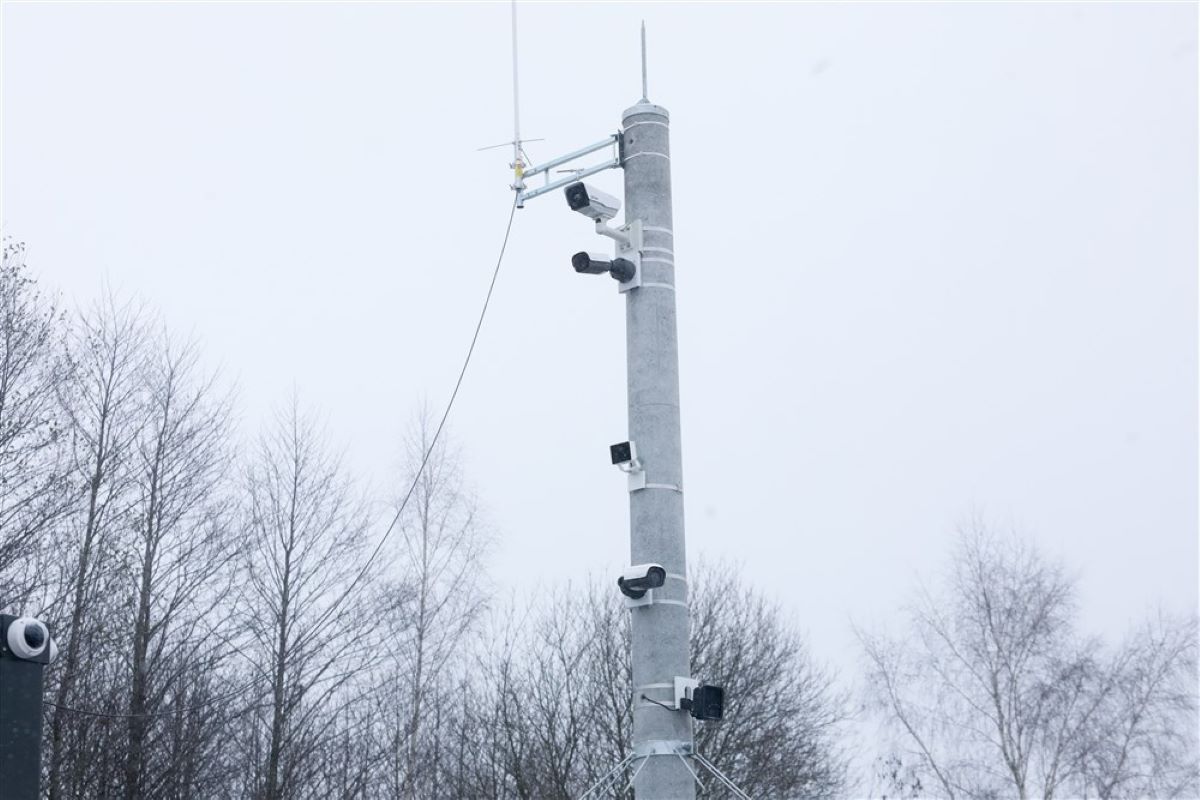On July 26, Nikos Androulakis, head of the socialist PASOK party, Greece’s third-largest, found that his phone had been infected with Predator spyware and at the same time was being monitored by the Greek intelligence service, EYP.
After Thanasis Koukakis, a financial journalist who specializes in corruption cases and banking scandals, who was also wiretapped, filed a complaint, Androulakis decided to pursue legal action.
Funded by European grants mostly and by subscribers with no advertisement revenue, independent investigative journalist groups since April have revealed the existence of a spying network both public and private, against journalists and politicians.
As a consequence of Androulakis’s move to reveal his surveillance, two members of PM Mitsotakis’ inner circle resigned on August 5: the head of the EYP, Panagiotis Kontoleon, and the Prime Minister’s chief-of-staff (and nephew), Grigoris Dimitriadis.
In the cases of both the Socialist party leader and the financial journalist, it was revealed that the intelligence service and private software spyware predator operated complementary to one another other, although no direct connection between the two has been proven as yet.

The new Greek PASOK party leader, Nikos Androulakis speaks during a press conference after a meeting with Portuguese Socialist Party in Lisbon, Portugal, 28 March 2022. EPA-EFE/ANDRE KOSTERS
‘Protective fence’ surrounding corruption suspects
In 2019, one month after the national elections in Greece, I wrote an article for the New York Times’, arguing that Mitsotakis could never be a moderate liberal politician as he would have us believe, but would rule with a combination of aggressive neoliberal and authoritarian politics. However, my warning didn’t foresee the severity of his populist turn.
Year after year, European Commission rule of law reports have upgraded their warnings about the dysfunctional judicial system and freedom of the press in Greece. But the wiretapping scandal and the uncontrolled operation of spyware in Greece are taking the discussion to a new level.
In 2021 alone, 15,000 decisions were taken to intercept, continue or end the communications of individuals implicated in cases of national security. The numbers grew after the Greek bankruptcy crisis of 2010, but in the past three years, have reached an all-time record.
Furthermore, since 2019, it is not clear how many of them relate to crime and how many are related to national security concerns. This is because, in a series of legal actions, the government has secreted processes and the legal right to information on them.
When journalist Koukakis tried to obtain information on his surveillance, the government changed the law and forced the authorities to deny it. But when an MEP and Pasok leader discovered he was being subjected to surveillance as well, it was impossible to avoid the exposure.
When Koukakis started revealing financial scandals in banks, Mitsotakis didn’t hesitate to change the law that could have forced the judicial authorities to summon bankers who were implicated in fraud, illegal public spending, or tax evasion.

Greek Journalists Stavros Malichudis (2-L), Eliza Triantafillou (C), and Thanasis Koukakis (R) attend a hearing by the European Parliament?s Inquiry Committee amid an investigation into the use of the Pegasus surveillance spyware in Greece, in Brussels, Belgium, 08 September 2022. EPA-EFE/OLIVIER HOSLET
A sequence of events suggests that Mitsotakis may have actively tried to create a protective fence around the people investigated for financial scandals. A few examples: by amending the penal code, the crime of banking fraud is no longer prosecuted ex officio by the prosecutor, but requires a complaint from the bank. That means, that if an executive commits the crime of dishonesty, the prosecutor cannot intervene if the bank itself does not file a complaint. Guess who has benefited from having their cases archived in this way? The people Koukakis was researching.
Then came the abolition of the ex-officio prosecution of the crime of tax evasion (for over 150,000 euros) – unless a final certificate from the tax administration causes negative press headlines. Last but not least, it was revealed that the people involved in the financial scandals Koukakis was researching were also related to Interllexa, the company that runs the predator software, originally created in North Macedonia, but officially running from Athens.
On top of the 15,000 official cases that EYP is handling every year, it seems that different spyware programs are operating “in the wild”, as the intelligence agency is not in control of these programs.
According to reports, the company serves 34 customers around the world from Athens, and it still advertises on its website as “intelligence solutions for governments”. A recent leak of documents from a cybersecurity forum suggest that it still provides remote control operations for one year at a price of 8 million euros. No authority has summoned the company yet to testify.
Did the government reduce to a tool of corruption?
The political roots of this scandal go back to Mitsotakis’s appropriation of ideas about an executive state borrowed from the Reagan era in the US and put into a Balkan context in the digital age.
There is tension between the concentration of political power on the one hand that refers to populist conservative administrations and to the decentralizing tendency of the markets. In short, a powerful PM’s office does not just overlook the function of government but directs all aspects of it, aiming to control corruption within the lower and middle levels of governance.
An extended office of technocrats accountable to the PM takes control of governance and outsources all executive work to private companies to avoid bureaucracy and enhance efficiency. Emphasis is given to a powerful police and the army, which guarantee safety and order. In that context, Mitsotakis didn’t hesitate to take under his command the national press agency, the national broadcaster, and the National Intelligence Agency.
But what happens when the government itself is a source of corruption, through a clientelistic system and weak institutions, as the wiretapping scandal indicates? In Greece, the so-called executive state seems to have reduced government to a tool of corrupt power, doing business at the top level of finance and politics, while alienating itself from the people and disorganizing different aspects of social life.
Whether it is wiretapping his political opponents (and financial actors) or providing the necessary political cover-up for an autonomous intelligence service and private actors, Mitsotakis has failed to defend democracy. While there have been serious cases of wiretapping in the past, what is striking, in this case, is its banality. A connection between public and private actors has not been proven, but strong indications suggest there may be a connection.
International media are focusing on this corruption and the European Parliament hosted an audit on the case, putting Greece, next to Poland, and Hungary, in a group of countries that violate the Rule of Law. Now the Greek government says it wants to modernize the framework that regulates surveillance. But in a populist or even ultra-conservative way, it also supports the EYP’s “modernization” and has praised its contribution to handling external threats in the region of the Evros river bordering Turkey and the Aegean.
It is unclear whether the government means that it is monitoring Turkish hostile actions on the border or refugees’ phones before deportation and pushbacks, but it is clear that it has intercepted journalists and humanitarian volunteers, apparently considering them a threat to national security! Journalists Malichudis and Papangeli fell victim to this perception of the “National threat”. As for the modernization of EYP, no law allows it to use spyware so far. But none of that seems to bother Mitsotakis. His government wants to continue doing business as usual, even if that now seems impossible.
Matthaios Tsimitakis is a Greek journalist and a digital communication expert based in Athens. He is an author of the independent Greek newsletter “Το Νήμα” (The Thread)
The opinions expressed are those of the author and do not necessarily reflect the views of BIRN.






















 Western Balkan countries faced by cyber attacks since July (illustration). Photo: EPA-EFE/SASCHA STEINBACH
Western Balkan countries faced by cyber attacks since July (illustration). Photo: EPA-EFE/SASCHA STEINBACH